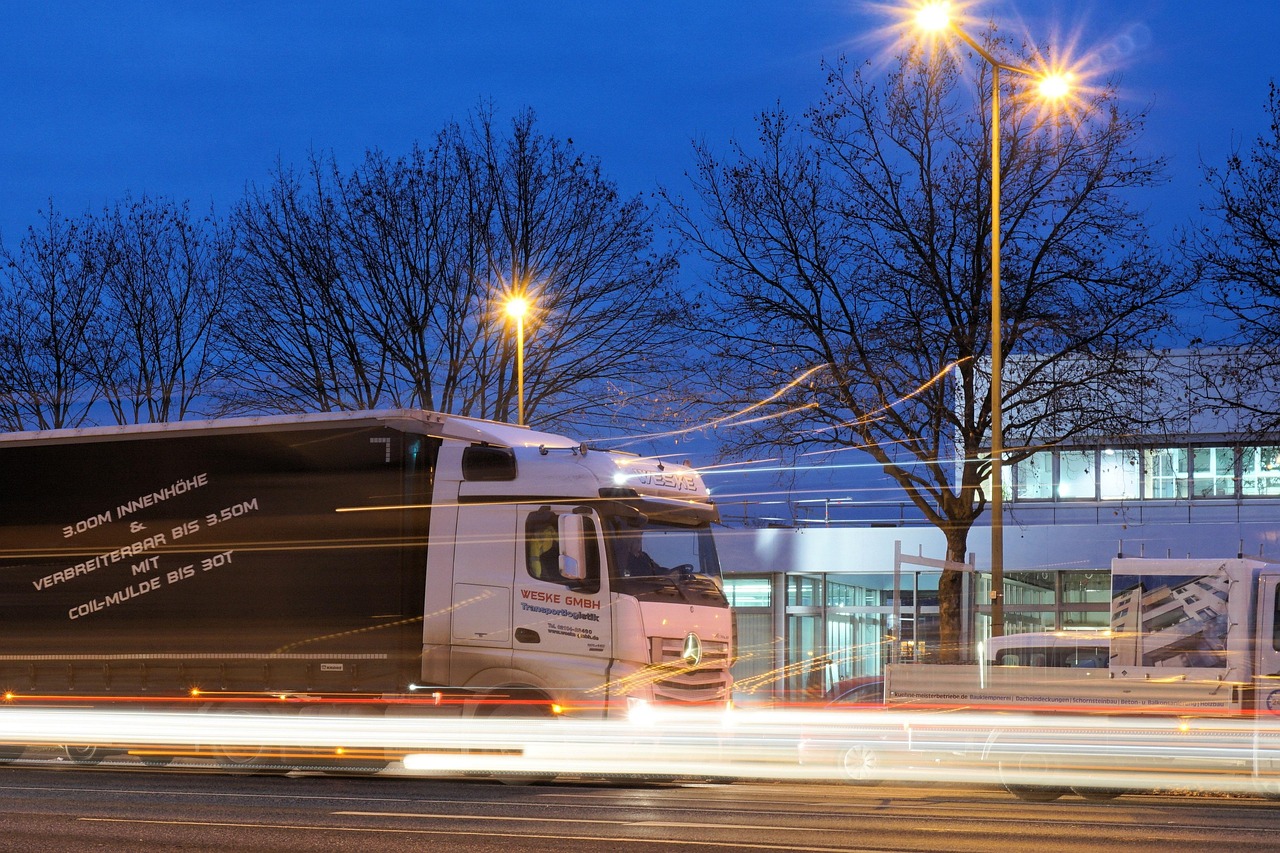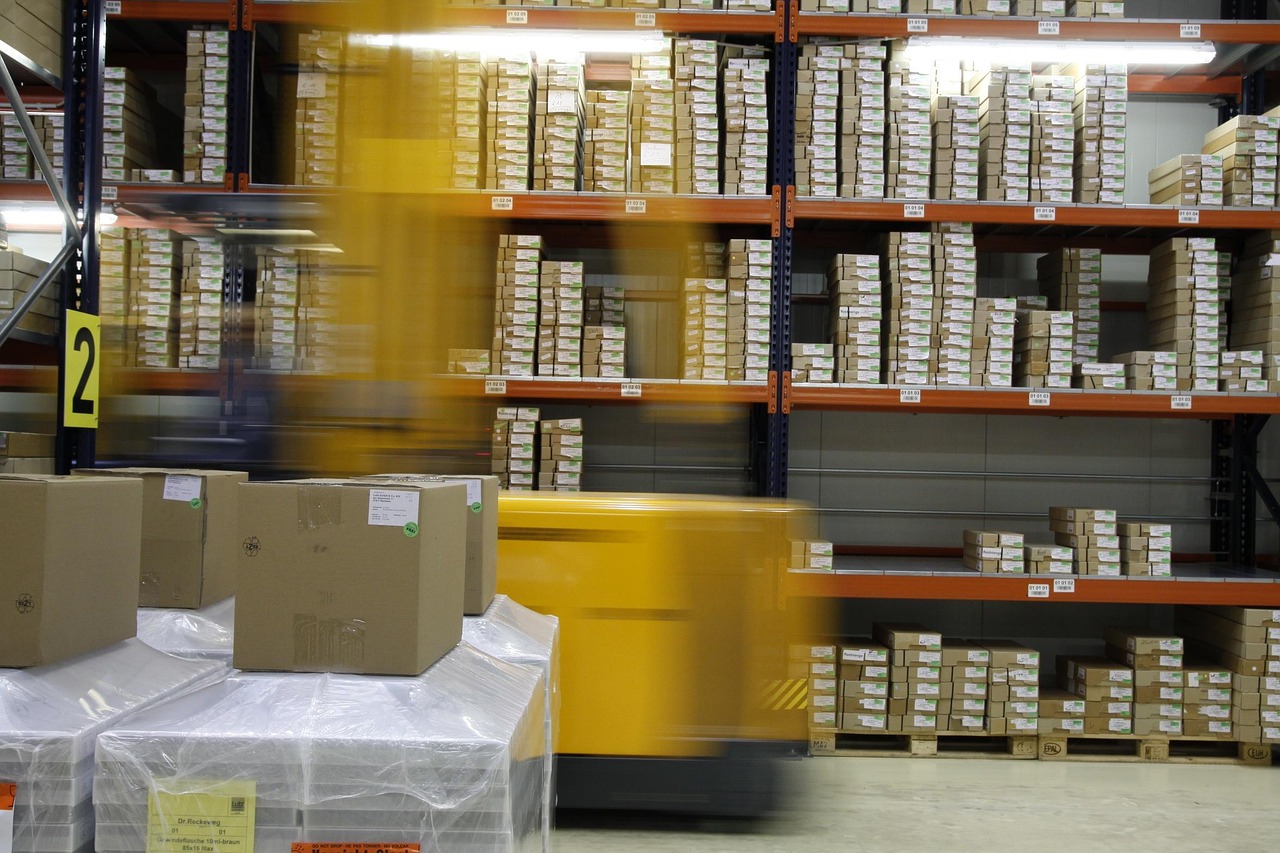Improve the logistics management of your e-commerce with fulfillment and automation tools to have greater control and achieve a reduction in costs.
Las intelligent logistics solutions are essential in the dynamics of e-commerce, especially because of the profile of consumers, also known as e-shoppers, who are characterized by a high level of expectation in the speed and quality of deliveries.
In this context, it is necessary to use technological strategies and tools designed to optimize e-commerce logistics management. Some of these solutions are Automation, the fulfillment services and the use of advanced technologies such as data analysis and Artificial Intelligence (AI).
Why are intelligent logistics solutions essential for e-commerce?
In a nutshell, they allow companies to improve efficiency and reduce operating costs.
La e-commerce logistics faces multiple challenges related to proper inventory management, transparency during the delivery process and efficiency during the last mile.
In response to this, the intelligent solutions in logistics they offer advantages such as:
- They optimize processes: Technology facilitates efficient logistics management, to result in faster and more accurate deliveries.
- They reduce logistics costs: Through automation and control, human errors and unnecessary expenses are minimized.
- They improve the customer experience: Shorter delivery times and real-time tracking increase customer satisfaction.
- Scalability: Companies can handle peak demand more easily, especially during peak seasons.
For all these reasons, adopting this type of solution for efficient logistics translates into a competitive advantage for e-commerce companies.
The main logistics solutions for e-commerce
Technological advances have resulted in a variety of tools and services that transform the way online businesses operate. Among the most prominent are fulfillment solutions and automation in logistics.
Fulfillment services: What are they and how do they benefit e-commerce?
El fulfillment for e-commerce, the service we provide at Cubbo, refers to the process of warehousing, order management and delivery to the end customer, including the management of returns, carried out by specialized third parties.
The three main benefits our customers get are:
1. Reduced operating costs: Expenses related to storage and shipping are delegated to experts.
2. Optimization of times: Smart logistics companies have the infrastructure to achieve fast shipping.
3. Improving the customer experience: Real-time tracking and seamless deliveries.
That's why delegating your logistics with Cubbo means for an e-commerce professionalize this process so important, to be able to focus on other business strategies that contribute to their growth.

Logistics automation: The key to efficient management
Automation and control is one of the pillars of intelligent logistics solutions. It involves the use of specialized technologies, automated picking systems and management software to:
- Reduce human errors.
- Streamline inventory management.
- Minimize downtime in warehouses.
Companies that implement these tools are able to optimize their logistics and supply chain, to ensure a constant flow of products to consumers.
You might be interested in: Logistics in ecommerce, key concepts to master
How do automation and control improve the supply chain in e-commerce?
The integration of advanced technology into the supply chain allows e-businesses to be more competitive. Some examples of the scope of automation are:
- Predict demand: Machine learning tools analyze buying patterns to adjust inventories.
- Optimize delivery routes: The use of algorithms improves last-mile logistics, to reduce time and costs.
- Real-time monitoring: Intelligent systems facilitate quick decision-making in the face of any type of contingency.
The use of these tools ensures that the e-commerce management be smooth, cost-effective and customer-oriented.
Reducing costs in e-commerce logistics
One of the biggest concerns for e-commerce managers is to control logistics costs. And, in response, the intelligent logistics solutions they make it possible to reduce them significantly.
Logistic costs: How to identify and reduce them?
Among the main operating expenses of an e-commerce, the following stand out:
1. Storage: Maintaining excessive inventories creates unnecessary costs.
2. Transportation: Inefficient routes drive up costs.
3. Returns: Poorly managed processes affect profit margins.
That's why, like specialists in fulfillment services, optimizing these areas is one of our main objectives. For example, outsourcing storage to specialized companies eliminates that expense, while taking advantage of their advanced infrastructure.

E-commerce logistics companies: How to choose the best option?
Selecting a suitable logistics partner is essential to implement logistics solutions that are really effective. Some differentiators that we offer at Cubbo, and that can guide you, are:
- Technological integration capacity: Look for companies that offer automation and tracking systems.
- Operational flexibility: Make sure they can adapt to your peaks in demand.
- Specialized Services: Opt for suppliers that offer fulfillment and integrated intelligent logistics solutions.
The role of intelligent logistics in e-commerce management
It is important to consider that the e-commerce logistics it's not limited to storage and transportation; it's about a strategic engine. Therefore, with the implementation of advanced solutions, e-businesses can achieve:
- Increased operational efficiency: Faster and less error-prone processes.
- Customer Satisfaction: Timely, personalized deliveries that exceed expectations.
- Sustainable growth: Scalability, high responsiveness and long-term cost reduction.
All these advantages make logistics a pillar for e-commerce management.
The Future of Intelligent Logistics for E-Commerce
The future of intelligent logistics is marked by a greater penetration of emerging technologies in the sector, such as artificial intelligence (AI), automation, the Internet of Things (IoT) and blockchain technology. Next, we explore how each of these innovations impacts the industry.
Artificial Intelligence (AI): Predictive and Adaptive Logistics
Currently, AI already has several applications in e-commerce logistics, to analyze large amounts of data in real time and make more informed decisions, such as:
- Demand forecasts: Machine learning algorithms predict which products will be most in demand at certain times of the year, in order to adjust inventories.
- Route optimization: AI can calculate more efficient delivery routes, to reduce transportation costs and shipping time.
- Virtual assistants and chatbots: Resolve inquiries related to shipping and returns, to improve the customer experience.
Automation: Faster and more efficient warehouses and processes
The implementation of automated systems in warehouses is a pillar of efficiency in logistics processes. For example:
- Automated picking systems: Intelligent robots that select, pack and label products, streamlining order processing.
- Autonomous vehicles: Automated trucks and drones are revolutionizing last-mile deliveries, especially in dense urban areas.
- Product classification: Automated sorting lines separate packages according to their destination, to accelerate shipping.

Internet of Things (IoT): Connected Logistics
The Internet of Things (IoT) connects devices and sensors across the supply chain, for greater visibility in real time and to facilitate efficient logistics management.
- Inventory monitoring: Intelligent sensors in warehouses allow you to track the stock level in real time and send alerts when it is necessary to restock.
- Real-time tracking: Sensors in vehicles and packages track their location and transport conditions, to ensure timely deliveries and products in good condition.
- Predictive maintenance: IoT-connected vehicles and equipment alert to potential faults before they occur, to avoid delays and additional costs.
Blockchain: Transparency and Security in the Supply Chain
Blockchain technology is also redefining logistics, offering greater transparency, traceability and security in operations.
- Product traceability: The blockchain records every stage of the supply chain, to manufacture quality, from receiving the order to the final delivery.
- Automated payments: Blockchain-based smart contracts automate payments once certain conditions are met, such as delivery confirmation.
- Fraud prevention: The immutability of blockchain helps combat counterfeiting in luxury and electronic products, ensuring that customers receive authentic items.
Technology as a driver of logistics transformation in e-commerce
As we saw, the use of drones, autonomous vehicles and predictive analytics promises to revolutionize logistics and supply chain, since these tools will make processes even more efficient and sustainable.
New logistics ideas for e-commerce that can make a difference
- Dark stores: Spaces dedicated exclusively to online order preparation.
- Micro-fulfillment centers: Automated warehouses close to customers to speed up deliveries.
- Green logistics: Sustainable solutions to reduce environmental impact, during deliveries.
Adopting intelligent logistics solutions for e-commerce growth
Intelligent logistics solutions are indispensable for improving operational efficiency, reducing costs and ensuring customer satisfaction.
The fact is that the advance of intelligent logistics is redefining the way in which companies operate today, but at the same time they are forging the foundations for a more efficient, transparent digital commerce and customer-oriented in the future.
Therefore, adopt advanced technologies such as automation in logistics and collaborating with companies specialized in e-commerce is the key to adapting to the demands of the digital market.
Take the next step towards growing your e-commerce with intelligent logistics solutions. Contact us today to begin with.








